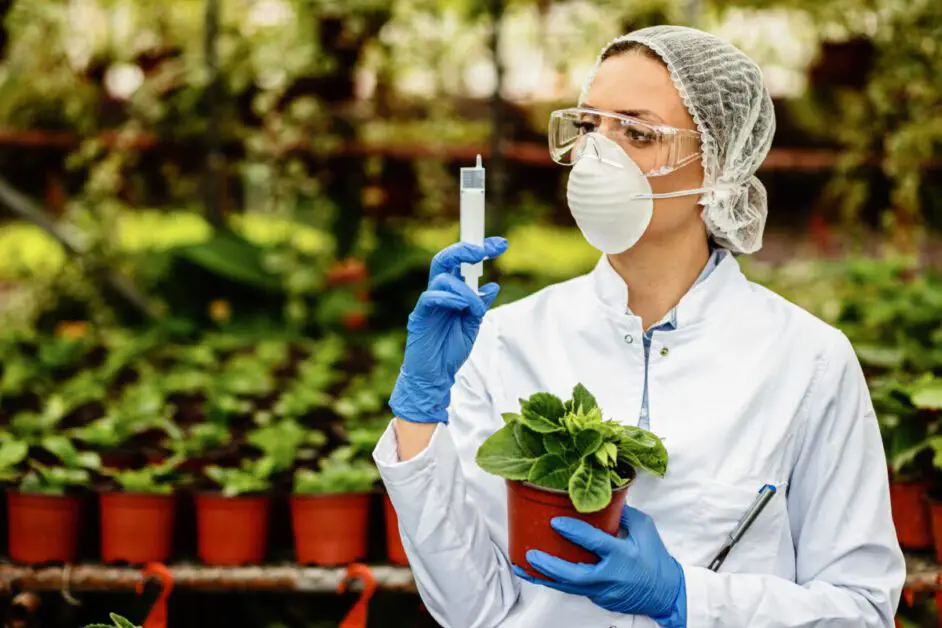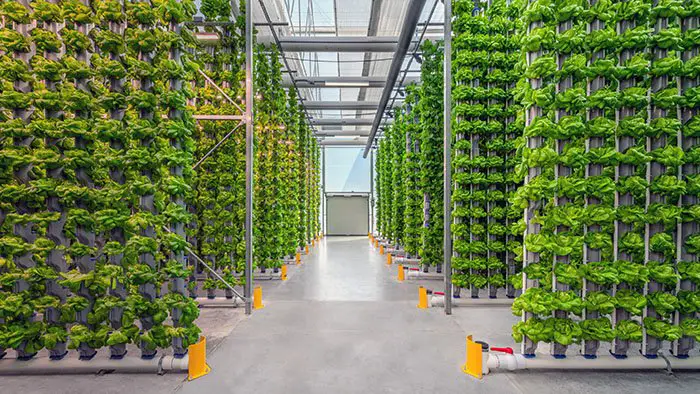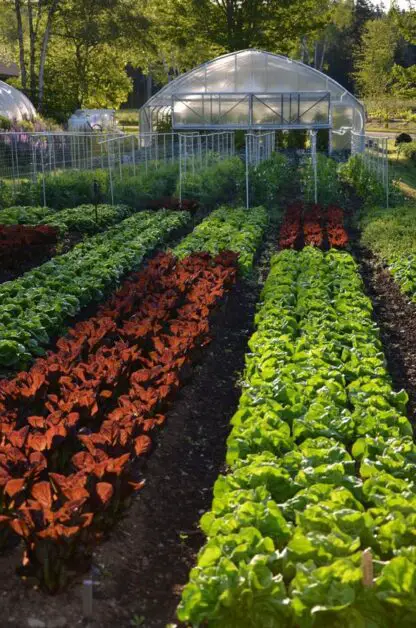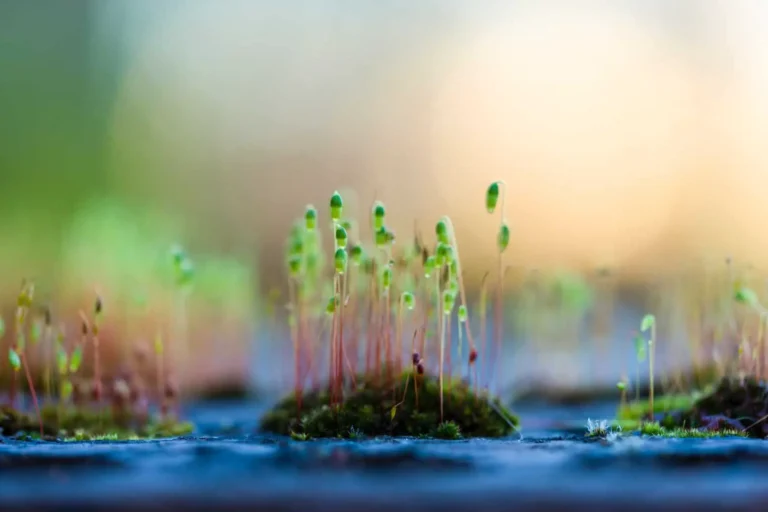Hypochlorous Acid Growing Applications: What It Is, How It Works, and How to Use It for Your Plants
Table of Contents
What is Hypochlorous Acid and its Role in Plant Growth
Hypochlorous acid (HOCl) is a highly effective and naturally occurring compound that plays a crucial role in promoting plant growth that is Hypochlorous Acid. It is a form of chlorine that is produced by our immune systems to fight off pathogens. In plants, Hypochlorous acid acts as a powerful antimicrobial agent, protecting them from harmful pathogens such as fungi, bacteria, and viruses.
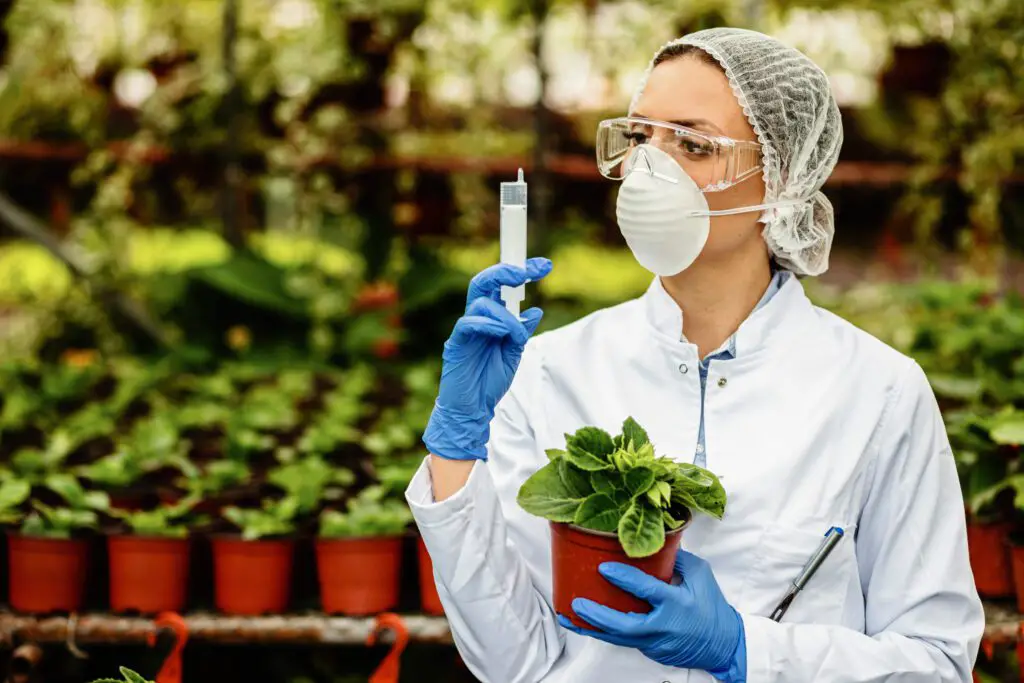
One of the key roles of Hypochlorous acid in plant growth is its ability to enhance the plant’s immune response. When plants are attacked by pathogens, they produce Hypochlorous acid to kill off these invaders and prevent them from spreading further. This not only helps to protect the plant, but it also improves overall plant health and vitality. Additionally, Hypochlorous acid plays a vital role in plant defense mechanisms, activating various biochemical processes that aid in the plant’s ability to resist and recover from diseases and environmental stresses.
In conclusion, understanding the role of Hypochlorous acid in plant growth is essential for gardeners and plant enthusiasts. By harnessing the power of this natural compound, we can effectively protect our plants from diseases, enhance their immune response, and promote healthy and vigorous growth. As we delve further into the mechanisms and benefits of Hypochlorous acid, we can explore its various applications in agriculture and leverage its potential to optimize crop yield and quality. Stay tuned for further insights into this remarkable compound and its applications in plant health and well-being.
Understanding the Mechanism of Hypochlorous Acid
Hypochlorous acid (HOCl) is a potent and highly effective substance that plays a crucial role in plant growth. It is a byproduct of the chlorine disinfection process, commonly found in household bleach and other sanitizing products. When applied to plants, HOCl acts as a natural and safe biocide, helping to control the growth of harmful microorganisms without causing harm to the plants themselves.

The mechanism of action of hypochlorous acid lies in its ability to destroy harmful bacteria, fungi, viruses, and other pathogens. HOCl is a powerful oxidizing agent that disrupts essential cellular processes in these microorganisms, resulting in their death. Additionally, it promotes plant health by stimulating the natural defense mechanisms of plants, enhancing their resistance to diseases and environmental stresses. HOCl can penetrate cell membranes and neutralize toxic substances, effectively detoxifying the plant tissues and promoting overall growth and vitality.
Understanding the mechanism behind hypochlorous acid’s actions is essential for harnessing its benefits in agriculture and gardening practices. By leveraging the powerful properties of HOCl, growers can effectively combat diseases, improve nutrient uptake, enhance seed germination, and optimize overall plant health. The next sections will delve deeper into the various applications of hypochlorous acid in agriculture, exploring its role in disease control and explaining how it helps in promoting healthy plant growth.
The Benefits of Using Hypochlorous Acid for Plant Health
Hypochlorous acid (HOCl) has gained recognition for its numerous benefits in promoting plant health. This powerful compound is known for its antimicrobial properties, making it an effective tool in controlling plant diseases. When used as a foliar spray, hypochlorous acid acts as a natural disinfectant, eliminating harmful pathogens that can hinder plant growth and development. Its ability to combat bacterial, fungal, and viral infections has made it a valuable asset in agriculture.
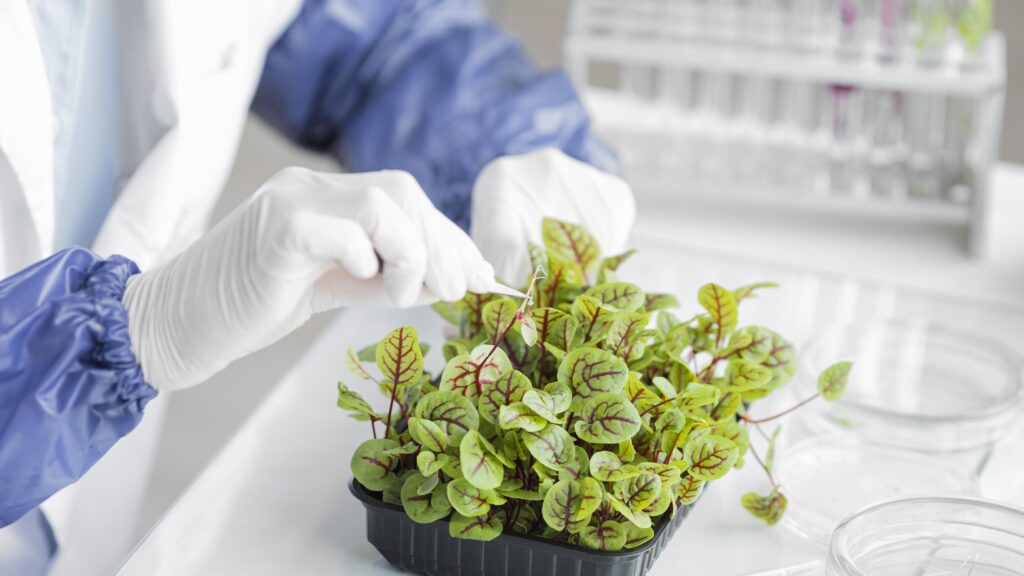
Not only does hypochlorous acid help control plant diseases, but it also aids in enhancing seed germination and root development. By applying a diluted solution of HOCl to seeds or seedlings, gardeners can create an optimal environment for germination, resulting in faster and more robust growth. Additionally, the use of hypochlorous acid promotes root development, allowing plants to access nutrients more efficiently. This leads to stronger, healthier plants with increased resistance against stressors such as drought or nutrient deficiencies. A healthy root system also improves the overall nutrient uptake and utilization, ultimately translating into improved crop yield and quality.
Exploring Different Applications of Hypochlorous Acid in Agriculture
Hypochlorous acid, a powerful and versatile compound, has been widely recognized for its diverse applications in agriculture. From its role in controlling plant diseases to enhancing seed germination and root development, this remarkable substance offers numerous benefits for plant health and growth. Let’s delve into some of the different applications of hypochlorous acid and the impact it can have on agricultural practices.
One of the key applications of hypochlorous acid lies in its effectiveness as a natural and eco-friendly pest control method. With its strong antimicrobial properties, hypochlorous acid acts as a potent disinfectant, eliminating harmful pathogens on plant surfaces. By using hypochlorous acid as a foliar spray, gardeners and farmers can protect their crops from pesky insects and reduce their reliance on chemical pesticides. This not only promotes sustainable farming practices but also ensures the safety of the produce for consumers.

Additionally, hypochlorous acid plays a crucial role in improving nutrient uptake and efficiency in plants. By enhancing the plant’s ability to absorb essential nutrients, this compound ensures that crops receive optimal nourishment for their growth and development. With better nutrient uptake, farmers can maximize crop yield and enhance the overall quality of their produce. As a result, hypochlorous acid offers a promising solution to address nutrient deficiencies and optimize agricultural productivity.
Stay tuned to explore more about the exciting possibilities and benefits that hypochlorous acid brings to the world of agriculture. From its role in controlling plant diseases to its potential as an environmentally friendly solution, the applications of hypochlorous acid are vast and impactful. Discover how this remarkable compound can revolutionize farming practices and contribute to a more sustainable and productive agricultural industry.
How Hypochlorous Acid Controls Plant Diseases
Hypochlorous acid has shown great potential in controlling plant diseases and improving overall plant health. Its antimicrobial properties make it a powerful tool in combatting various pathogens that can harm crops. Hypochlorous acid works by disrupting the cell membranes of microorganisms, which leads to their destruction.
Numerous studies have demonstrated the efficacy of hypochlorous acid against a wide range of plant diseases, including fungal, bacterial, and viral infections. For example, it has been found to effectively control common plant pathogens like powdery mildew, downy mildew, and gray mold. Its ability to penetrate the cell walls of microorganisms makes it particularly effective at targeting pathogens that cause disease.
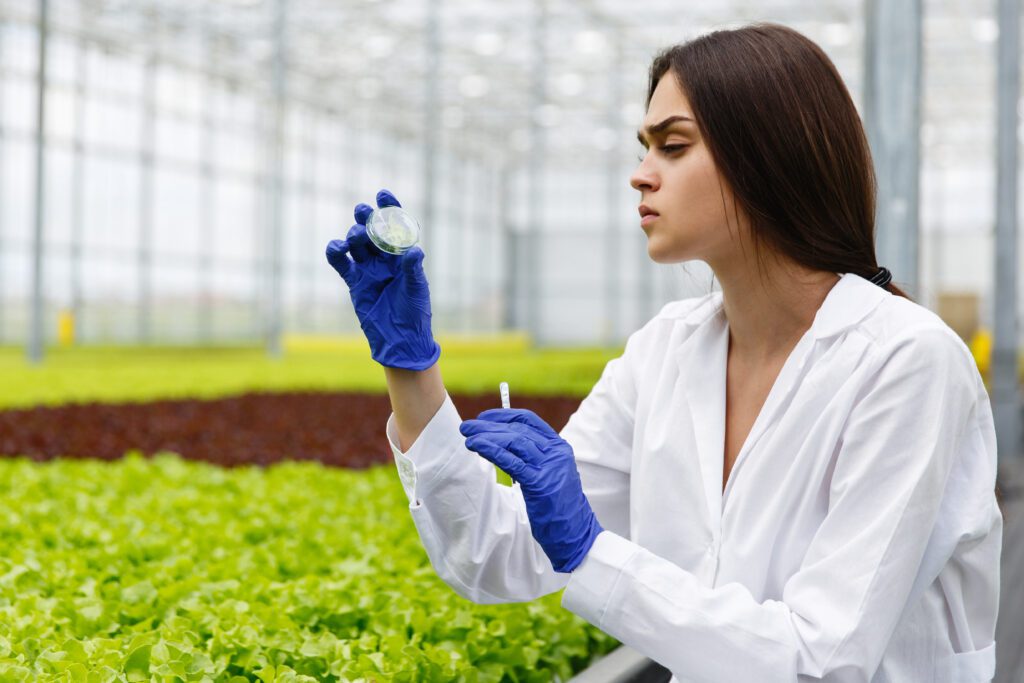
Unlike traditional chemical pesticides, hypochlorous acid is considered environmentally friendly and poses minimal risk to humans, animals, and beneficial insects. Its biodegradable nature and non-toxic properties make it a safe option for sustainable agriculture practices. Moreover, hypochlorous acid has been found to have no residual effect on harvested crops, ensuring that they remain safe for consumption.
In addition to its disease-controlling abilities, hypochlorous acid also promotes plant growth and enhances the overall vitality of crops. It stimulates root development, improves nutrient uptake, and boosts the plant’s immune system. These beneficial effects contribute to higher crop yields and improved crop quality.
Overall, hypochlorous acid offers a safe and effective solution for controlling plant diseases while promoting plant health. Its antimicrobial properties, coupled with its environmentally friendly nature, make it a valuable tool for both conventional and organic farming practices. Incorporating hypochlorous acid into plant disease management strategies can help growers protect their crops and achieve optimal productivity.
Enhancing Seed Germination and Root Development with Hypochlorous Acid
The role of hypochlorous acid in enhancing seed germination and root development is an exciting area of research that holds promising results for gardening enthusiasts. Hypochlorous acid, a naturally occurring compound, has been found to stimulate the growth of seedlings and promote the development of healthy root systems.
When used as a seed treatment, hypochlorous acid has been shown to improve seed germination rates by breaking down the outer protective layer of the seed, allowing moisture and nutrients to penetrate more easily. This enables the seed to absorb essential nutrients and moisture, leading to faster and more vigorous germination.
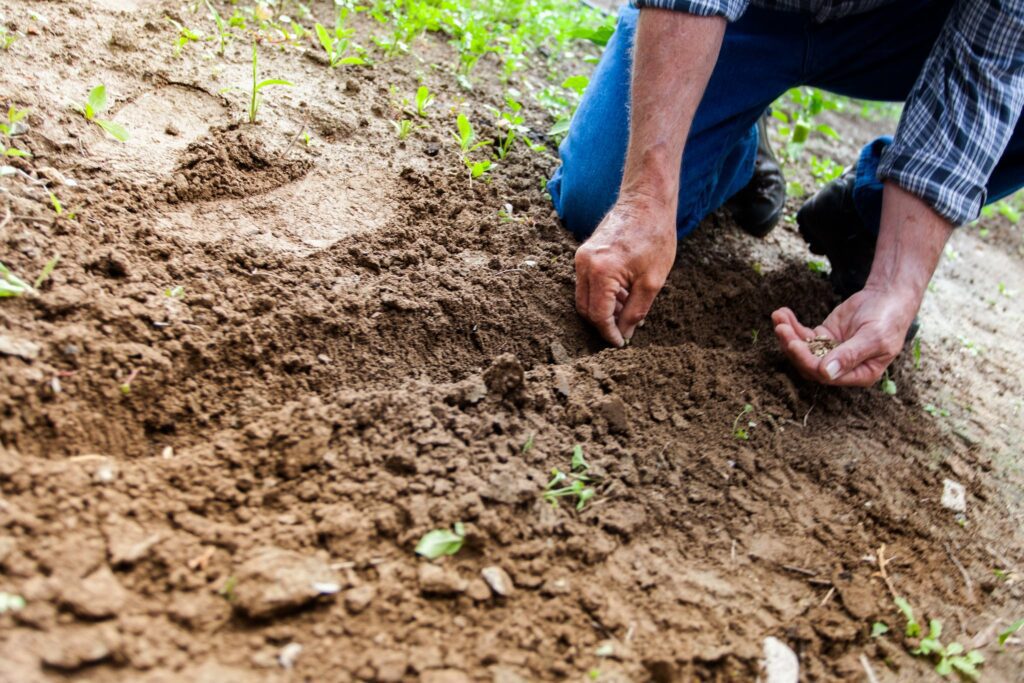
Moreover, hypochlorous acid has been found to stimulate root elongation and branching, resulting in a more robust root system. By increasing the number and length of roots, plants are better able to explore the soil for water and nutrients, resulting in improved overall plant health and productivity.
Research studies have also demonstrated the ability of hypochlorous acid to enhance the development of beneficial microbial populations in the rhizosphere, the region of soil surrounding the roots. These beneficial microbes play a crucial role in nutrient cycling and plant growth promotion, further supporting the positive effects of hypochlorous acid on seed germination and root development.
As a gardener or hydroponics enthusiast, incorporating hypochlorous acid into your seed germination and root development routine may prove beneficial. Its potential to stimulate seed germination, encourage root growth, and enhance nutrient uptake makes it a valuable tool for ensuring healthy and thriving plants. However, it is important to mention that further research is still needed to fully understand the optimal concentration and application methods for different plant species and growing conditions.
Using Hypochlorous Acid as a Natural Pest Control Method
Hypochlorous acid has been recognized as an effective natural solution for pest control in gardening and agriculture. Its antimicrobial properties make it a powerful weapon against various pests, including fungi, bacteria, and insects. By incorporating hypochlorous acid into your pest management strategies, you can maintain plant health and minimize damage caused by pests without resorting to harsh chemicals.
One of the key advantages of using hypochlorous acid as a natural pest control method is its ability to target specific pests while being safe for plants and beneficial organisms. Unlike traditional pesticides, which can harm beneficial insects and pollinators, hypochlorous acid selectively eliminates harmful pests without causing harm to other beneficial organisms in the ecosystem. This targeted approach helps maintain a balance in the garden and promotes overall ecological health.
Additionally, hypochlorous acid acts quickly and effectively against pests, making it a reliable solution for controlling infestations. It disrupts the cellular structures of pests, damaging their membranes and impairing their vital functions. This mode of action not only eliminates existing pests but also helps prevent their recurrence, creating a more sustainable and long-lasting pest control strategy.
As a natural pest control method, hypochlorous acid offers gardeners and growers a safe and efficient way to protect their plants from a wide range of pests. Its selective action, quick effectiveness, and environmental friendliness make it a valuable addition to any integrated pest management approach. So if you’re looking for a safe and effective solution to keep your plants pest-free, consider incorporating hypochlorous acid into your gardening practices.
Hypochlorous Acid as a Foliar Spray: How to Apply it Correctly
When it comes to applying Hypochlorous Acid as a foliar spray, it is important to follow the correct procedure to maximize its effectiveness. Firstly, it is crucial to dilute the Hypochlorous Acid solution to the recommended concentration. This ensures that the plants receive the appropriate dose of the acid without causing any harm. It is recommended to follow the instructions provided by the manufacturer or consult with a gardening expert for precise guidelines.
In terms of application, it is advisable to use a sprayer that provides a fine mist rather than large droplets. This allows for better coverage of the leaves and ensures that the solution reaches all parts of the plant. It is also important to spray the solution evenly, making sure to include both the upper and lower surfaces of the leaves. This helps to protect the plants against various diseases and pests. Additionally, it is best to apply the foliar spray in the early morning or late evening when the sun is not at its peak. This avoids the risk of leaf burn due to the acid reacting with sunlight.
The Role of Hypochlorous Acid in Nutrient Uptake and Efficiency
Hypochlorous Acid (HOCl) plays a critical role in maximizing nutrient uptake and efficiency in plants. As a highly reactive compound, HOCl is involved in several key processes that promote the absorption and utilization of essential nutrients by plants. One such process is the activation of enzymes involved in nutrient metabolism, which helps plants break down complex molecules and convert them into forms that can be readily taken up by the roots.
Additionally, HOCl is known to enhance the permeability of plant cell membranes, allowing for easier movement of nutrients across cell walls. This improved membrane permeability enables efficient nutrient absorption, as well as the transport of these nutrients to different parts of the plant, including the leaves, stems, and ultimately, the fruits or seeds. By facilitating nutrient mobility, HOCl helps ensure that essential elements are distributed evenly throughout the plant, optimizing overall growth and development.
Furthermore, research has shown that HOCl can stimulate the growth of beneficial microorganisms in the soil, such as mycorrhizal fungi, which form symbiotic relationships with plant roots. These fungi help enhance nutrient uptake by extending the root system and increasing the surface area available for nutrient absorption. As a result, plants treated with HOCl are not only able to absorb nutrients more efficiently but also benefit from a more diverse and robust soil microbiome, further enhancing their nutrient acquisition capabilities.
In summary, the role of HOCl in nutrient uptake and efficiency is crucial for plant growth and development. By activating enzymes, improving membrane permeability, and promoting beneficial relationships with soil microorganisms, HOCl ensures that plants can access and utilize essential nutrients effectively. Incorporating HOCl-based products into plant nutrition regimes can significantly enhance the nutrient absorption capacity of plants, leading to healthier and more productive crops.
Improving Crop Yield and Quality with Hypochlorous Acid
The use of hypochlorous acid in agriculture has been increasingly recognized as a valuable tool for improving crop yield and quality. Hypochlorous acid, with its antimicrobial properties and ability to stimulate plant growth, has shown promising results in enhancing agricultural productivity.
One of the key benefits of using hypochlorous acid is its ability to control various plant diseases. The acid acts as a natural fungicide and bactericide, effectively targeting harmful pathogens while leaving beneficial microorganisms unharmed. This helps to minimize the incidence of diseases that can significantly impact crop yield and quality. Additionally, hypochlorous acid has been found to suppress the growth of common plant pathogens such as Fusarium, Phytophthora, and Pythium, further safeguarding plant health.
Furthermore, hypochlorous acid plays a crucial role in improving nutrient uptake and efficiency in plants. Through its unique mechanism of action, it enhances the development of a plant’s root system, allowing for better absorption of essential nutrients from the soil. This, in turn, promotes healthier and more vigorous plant growth, resulting in increased crop yield and improved quality. It is worth noting that hypochlorous acid can also accelerate seed germination, a vital process for crop establishment.
By harnessing the potential of hypochlorous acid, farmers and gardeners can take a proactive approach towards optimizing crop production. Not only does it offer plant disease control benefits, but it also helps maximize nutrient availability for plants, translating into improved agricultural outcomes. With further research and understanding of this organic solution, its potential impact on crop yield and quality is likely to continue expanding, aiding in sustainable farming practices.
Hypochlorous Acid: An Environmentally Friendly Solution
Hypochlorous acid is gaining recognition as an environmentally friendly solution for plant health and disease control. This compound, which is naturally produced by our immune system, has proven effective in boosting plant growth and defending against pests and diseases without posing harm to humans, animals, or the environment. By harnessing the power of hypochlorous acid, gardeners and farmers can reduce their reliance on harmful chemicals and embrace a more sustainable approach to agriculture.
One of the key advantages of hypochlorous acid is its strong antimicrobial properties. It has been shown to effectively combat bacteria, viruses, fungi, and other harmful pathogens that can wreak havoc on plant health. Moreover, unlike traditional chemical pesticides, hypochlorous acid does not leave behind harmful residues that can contaminate the soil, water sources, or the produce itself. This makes it an ideal choice for organic farming and gardening practices, minimizing the negative impact on the ecosystem while promoting sustainable plant growth.
Factors to Consider When Choosing Hypochlorous Acid Products
When choosing hypochlorous acid products for your gardening needs, there are several factors to consider. First and foremost, it is crucial to select a product that is formulated specifically for plant use. Hypochlorous acid solutions designed for disinfection purposes may contain additional chemicals or additives that could harm plant health. Look for products that clearly state they are safe for plants and comply with agricultural regulations.
Another important factor to consider is the concentration of hypochlorous acid in the product. Different plants have varying tolerance levels for this acid, and using a product with a concentration that is too high can lead to damage. On the other hand, a product with a low concentration may not have the desired effect in controlling diseases or promoting growth. It is advisable to consult with a horticulture expert or refer to reputable sources to determine the appropriate concentration based on your specific plant variety and needs. Additionally, always follow the instructions provided by the manufacturer for proper dilution and application rates to ensure optimal results.
Tips and Best Practices for Using Hypochlorous Acid on Your Plants
When using hypochlorous acid on your plants, it is important to follow these tips and best practices to ensure optimal results. Firstly, always dilute the hypochlorous acid solution according to the manufacturer’s instructions. Using too concentrated a solution can potentially harm your plants and even burn the leaves. Diluting the solution appropriately will ensure that it is effective in promoting plant health without causing any damage.
Secondly, consider the timing of the application. It is advisable to apply hypochlorous acid to plants during the early morning or late afternoon when the temperatures are cooler. This will minimize the risk of evaporation and allow the solution to be absorbed by the plants more effectively. Additionally, avoid applying hypochlorous acid during periods of high humidity or rain, as this may reduce the efficacy of the solution.
Another important tip is to thoroughly spray all parts of the plants, including the leaves, stems, and even the soil around the root zone. This will help in targeting pest insects and preventing the growth of harmful pathogens. Be sure to use a fine mist sprayer to achieve an even application, and ensure that the solution reaches all areas of the plant.
Additionally, it is recommended to apply hypochlorous acid on a regular basis, especially during periods of active growth or when plants are stressed. By incorporating hypochlorous acid into your regular plant care routine, you can provide ongoing protection and promote optimal plant health.
To maximize the effectiveness of hypochlorous acid, it is crucial to maintain a clean and hygienic growing environment. Regularly clean and sanitize your gardening tools, containers, and equipment to minimize the risk of introducing pathogens or pests to your plants. This proactive approach will help to prevent the spread of diseases and ensure the overall health of your plants.
Following these tips and best practices for using hypochlorous acid on your plants will help you achieve the best possible results, promoting healthy growth and protecting against diseases and pests. By incorporating hypochlorous acid into your plant care routine, you can enhance the overall health and productivity of your garden or crops.
• Dilute the hypochlorous acid solution according to the manufacturer’s instructions to avoid harming your plants or burning their leaves.
• Apply hypochlorous acid during cooler times of the day, such as early morning or late afternoon, to minimize evaporation and ensure better absorption by the plants.
• Avoid applying hypochlorous acid during periods of high humidity or rain, as this can reduce its efficacy.
• Thoroughly spray all parts of the plants, including leaves, stems, and soil around the root zone, to target pests and prevent harmful pathogen growth.
• Use a fine mist sprayer for an even application and make sure that the solution reaches all areas of the plant.
• Apply hypochlorous acid regularly during active growth or when plants are stressed for ongoing protection and optimal plant health.
• Maintain a clean and hygienic growing environment by regularly cleaning and sanitizing gardening tools, containers, and equipment to prevent disease spread.
What is the recommended concentration of hypochlorous acid for use on plants?
The recommended concentration of hypochlorous acid for use on plants varies depending on the specific application and plant type. It is best to follow the instructions provided by the manufacturer or consult with a professional in the field.
Can hypochlorous acid be harmful to plants if used incorrectly?
Yes, if hypochlorous acid is used at excessive concentrations or not diluted properly, it can be harmful to plants. It is important to follow the recommended guidelines and instructions for application to ensure the health and safety of your plants.
Can hypochlorous acid be used on all types of plants?
Hypochlorous acid can generally be used on a wide range of plant species. However, it is always recommended to conduct a small test application on a small portion of the plant before treating the entire plant to ensure there are no adverse effects.
Can hypochlorous acid be used as a fertilizer substitute?
While hypochlorous acid can contribute to plant health and disease control, it is not a substitute for traditional fertilizers. Hypochlorous acid primarily acts as a plant protectant and can enhance nutrient uptake, but it does not provide the complete range of essential nutrients that plants need to thrive.
Is hypochlorous acid safe for human consumption if used on edible plants?
When used according to recommended guidelines, hypochlorous acid is considered safe for human consumption. However, it is still important to wash and rinse edible plants thoroughly before consumption to remove any residual traces of the acid.
Can hypochlorous acid be used in organic farming?
Yes, hypochlorous acid can be used in organic farming as it is considered an environmentally friendly solution. However, it is essential to ensure that the specific product being used is approved for organic farming practices and meets the regulations set by organic certifying agencies.
Can hypochlorous acid be used in hydroponics or aquaponics systems?
Yes, hypochlorous acid can be used in hydroponics and aquaponics systems. It can help control pathogens and promote healthy plant growth. However, it is crucial to follow the recommended guidelines for application and consider the specific needs and requirements of your system.
Does hypochlorous acid have any negative effects on beneficial insects or pollinators?
When used as directed, hypochlorous acid generally does not have negative effects on beneficial insects or pollinators. However, it is always recommended to avoid direct contact with these organisms and apply the acid during times when pollinators are less active, such as early morning or late evening.
How frequently should hypochlorous acid be applied to plants?
The frequency of hypochlorous acid application will depend on various factors such as the specific plant type, the presence of pests or diseases, and growing conditions. It is best to refer to the product instructions or seek advice from a professional to determine the appropriate application frequency for your plants.
Can hypochlorous acid be used as a standalone solution for plant health and disease control?
Hypochlorous acid can be an effective tool for plant health and disease control, but it is often most beneficial when used as part of an integrated pest management (IPM) program. It is recommended to combine hypochlorous acid with other appropriate cultural, biological, and chemical control methods for optimal results.

Kanike Sreekanth, a prolific writer at SouthElMonteHydroponics, brings a unique blend of creativity and scientific rigor to the table. With a degree in Horticulture from a prestigious institution, Kanike’s expertise spans hydroponic farming, plant biology, and agricultural sustainability. Their passion for exploring innovative cultivation methods and promoting environmental stewardship drives them to uncover new insights in the realm of hydroponics. Kanike’s writing serves as a conduit for sharing their knowledge and inspiring others to embrace alternative farming practices for a more sustainable future.

